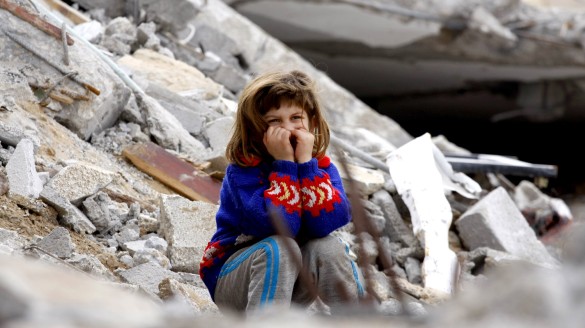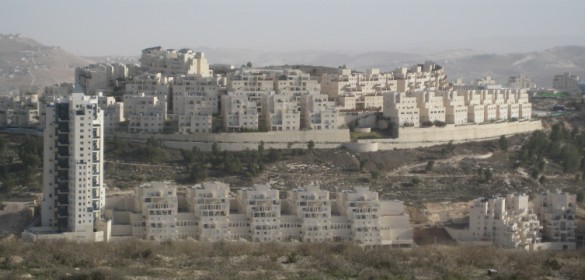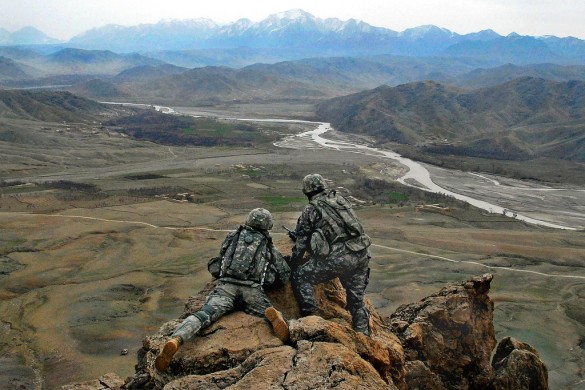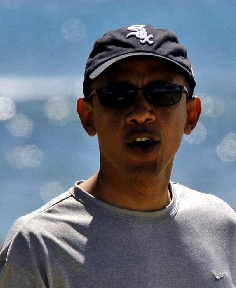Could Afghanistan become Obama’s Vietnam?
By Peter Baker, New York Times, August 23, 2009
President Obama had not even taken office before supporters were etching his likeness onto Mount Rushmore as another Abraham Lincoln or the second coming of Franklin D. Roosevelt.
Yet what if they got the wrong predecessor? What if Mr. Obama is fated to be another Lyndon B. Johnson instead?
To be sure, such historical analogies are overly simplistic and fatally flawed, if only because each presidency is distinct in its own way. But the L.B.J. model — a president who aspired to reshape America at home while fighting a losing war abroad — is one that haunts Mr. Obama’s White House as it seeks to salvage Afghanistan while enacting an expansive domestic program.
In this summer of discontent for Mr. Obama, as the heady early days give way to the grinding battle for elusive goals, he looks ahead to an uncertain future not only for his legislative agenda but for what has indisputably become his war. Last week’s elections in Afghanistan played out at the same time as the debate over health care heated up in Washington, producing one of those split-screen moments that could not help but remind some of Mr. Johnson’s struggles to build a Great Society while fighting in Vietnam.
“The analogy of Lyndon Johnson suggests itself very profoundly,” said David M. Kennedy, the Stanford University historian. Mr. Obama, he said, must avoid letting Afghanistan shadow his presidency as Vietnam did Mr. Johnson’s. “He needs to worry about the outcome of that intervention and policy and how it could spill over into everything else he wants to accomplish.” [continued…]
— It’s not too soon to be comparing Obama to LBJ and it’s not too soon to be asking whether he’ll seek a second term. To call the war in Afghanistan a “war of necessity” was a strategic blunder. Obama first paddled up shit creek and then decided to throw away his paddle.
‘Is he weak?’
By Jim Hoagland, Washington Post, August 23, 2009
Shortly after the Group of 20 summit concluded in London in April, Nicolas Sarkozy blurted out to a small group of advisers a question that weighed on him as he watched President Obama glad-hand his way through the gathering: “Est-il faible?” (Is he weak?)
The French president did not answer his own blunt query, which faded as the American leader commanded a hectic round of domestic economic intervention and agenda-setting abroad in the weeks that followed. Initial doubts about Obama’s toughness went on the shelf at the Elysee Palace and elsewhere.
But the Sarkozy question was abruptly dusted off as Obama began hitting resistance to some of his most ambitious goals, including health-care reform, Middle East peacemaking and engagement with Iran. Is Obama making tactical retreats to gain better position on these hard cases — or is he, well, weak? [continued…]
Marines fight Taliban with little aid from Afghans
By Richard A Oppel Jr., New York Times, August 23, 2009
American Marines secured this desolate village in southern Afghanistan nearly two months ago, and last week they were fortifying bases, on duty at checkpoints and patrolling in full body armor in 120-degree heat. Despite those efforts, only a few hundred Afghans were persuaded to come out here and vote for president on Thursday.
In a region the Taliban have lorded over for six years, and where they remain a menacing presence, American officers say their troops alone are not enough to reassure Afghans. Something is missing that has left even the recently appointed district governor feeling dismayed. “I don’t get any support from the government,” said the governor, Massoud Ahmad Rassouli Balouch.
Governor Massoud has no body of advisers to help run the area, no doctors to provide health care, no teachers, no professionals to do much of anything. About all he says he does have are police officers who steal and a small group of Afghan soldiers who say they are here for “vacation.” [continued…]
Taliban attacks leave poll soaked in Afghan blood
By Jon Swain, The Sunday Times, August 23, 2009
Making Helmand safe to vote had been Britain’s military priority this summer, the bloodiest since 2001. The aim of the five-week operation Panther’s Claw, involving 3,000 British troops, was to push the Taliban from the north of Lashkar Gah.
Ten British soldiers died in the campaign. Lieutenant-Colonel Gus Fair, commander of the Light Dragoons battle group, wrote in his diary afterwards that, as a result, people who had been subject to the rule of the Taliban could now live without the fear of them “visiting in the middle of the night”.
With some optimism he added that they now had “the freedom to vote … the chance to look forward to enjoy some of the rights and privileges that we are lucky enough to take for granted”.
In Babaji district, where the British claimed they had brought 80,000 villagers under government control during daylight hours at least, only 150 people cast their vote. “There were supposed to be three polling stations but they were closed,” said Sardar Mohammed, 54, who lives in the district. [continued…]
U.S. seeks overhaul in Kabul after vote
By Peter Siegel and Jay Solomon, Wall Street Journal, August 23, 2009
US officials are strategizing about how to persuade Afghan President Hamid Karzai to overhaul his government, which is widely viewed here as corrupt and ineffectual, if he wins a second term.
At the same time, some in Washington fear a runoff election could steal valuable time from the international efforts to stabilize the country. Both Mr. Karzai and his leading challenger, former foreign minister Abdullah Abdullah, have claimed significant leads.
Results of Thursday’s presidential balloting in Afghanistan may not be available until Tuesday. If no candidate wins more than 50% of the vote, and a runoff is necessary, these U.S. officials said it could be Oct. 1 before there is a functioning government in Kabul. [continued…]
New leader of Pakistan’s Taliban is named, though officials believe he is dead
By Ismail Khan and Lydia Polgreen, New York Times, August 23, 2009
A senior leader of the Pakistani Taliban announced Saturday that a brash young commander with a reputation for pitiless violence appeared to have won the struggle to lead the group — even as the government wrestles with conflicting information about whether that commander is even alive.
Intelligence officials in Pakistan say that the newly proclaimed leader, Hakimullah Mehsud, is dead. But Pakistan’s interior minister, Rehman Malik, said Saturday in an interview that he was alive, although gravely injured, and that Taliban fighters were desperately searching for his younger brother as a stand-in.
The news on Saturday adds to the confusion that has surrounded the leadership of the group since its head, Baitullah Mehsud, was reportedly killed this month in a drone attack.
Maulvi Faqir Muhammad, deputy commander of the group, had proclaimed himself successor to Baitullah Mehsud just a few days ago. But on Saturday he told reporters by telephone that the much younger and more aggressive Hakimullah Mehsud would be the insurgency’s new leader. [continued…]






 ith great sorrow and deep consternation, we hereby declare the death of the latest hope. Perhaps rumors of its death are greatly exaggerated, to paraphrase the famous quote by Mark Twain, but the fears are being validated day after day. Barack Obama’s America is not delivering the goods. Sharing a glass of beer with a racist cop and a pat on the back of Hugo Chavez are not what we hoped for; wholesale negotiations on freezing settlement construction are also not what we expected. Just over six months after the most promising president of all began his term, perhaps hope has a last breath left, but it is on its deathbed.
ith great sorrow and deep consternation, we hereby declare the death of the latest hope. Perhaps rumors of its death are greatly exaggerated, to paraphrase the famous quote by Mark Twain, but the fears are being validated day after day. Barack Obama’s America is not delivering the goods. Sharing a glass of beer with a racist cop and a pat on the back of Hugo Chavez are not what we hoped for; wholesale negotiations on freezing settlement construction are also not what we expected. Just over six months after the most promising president of all began his term, perhaps hope has a last breath left, but it is on its deathbed.